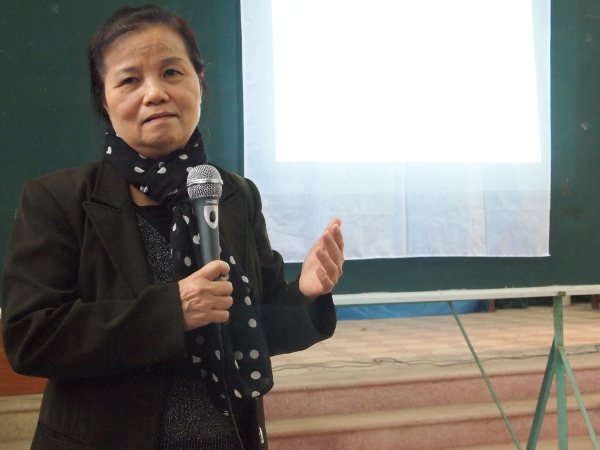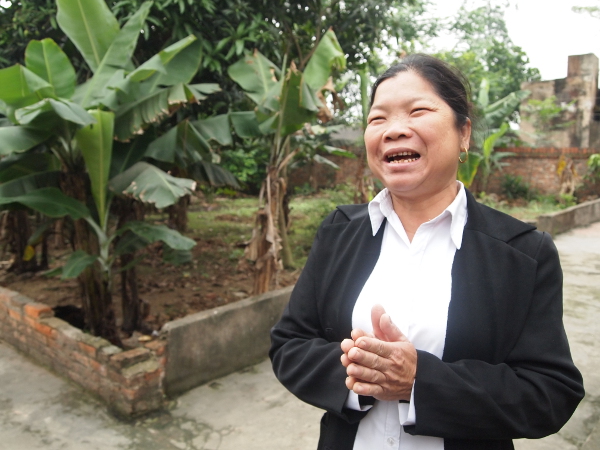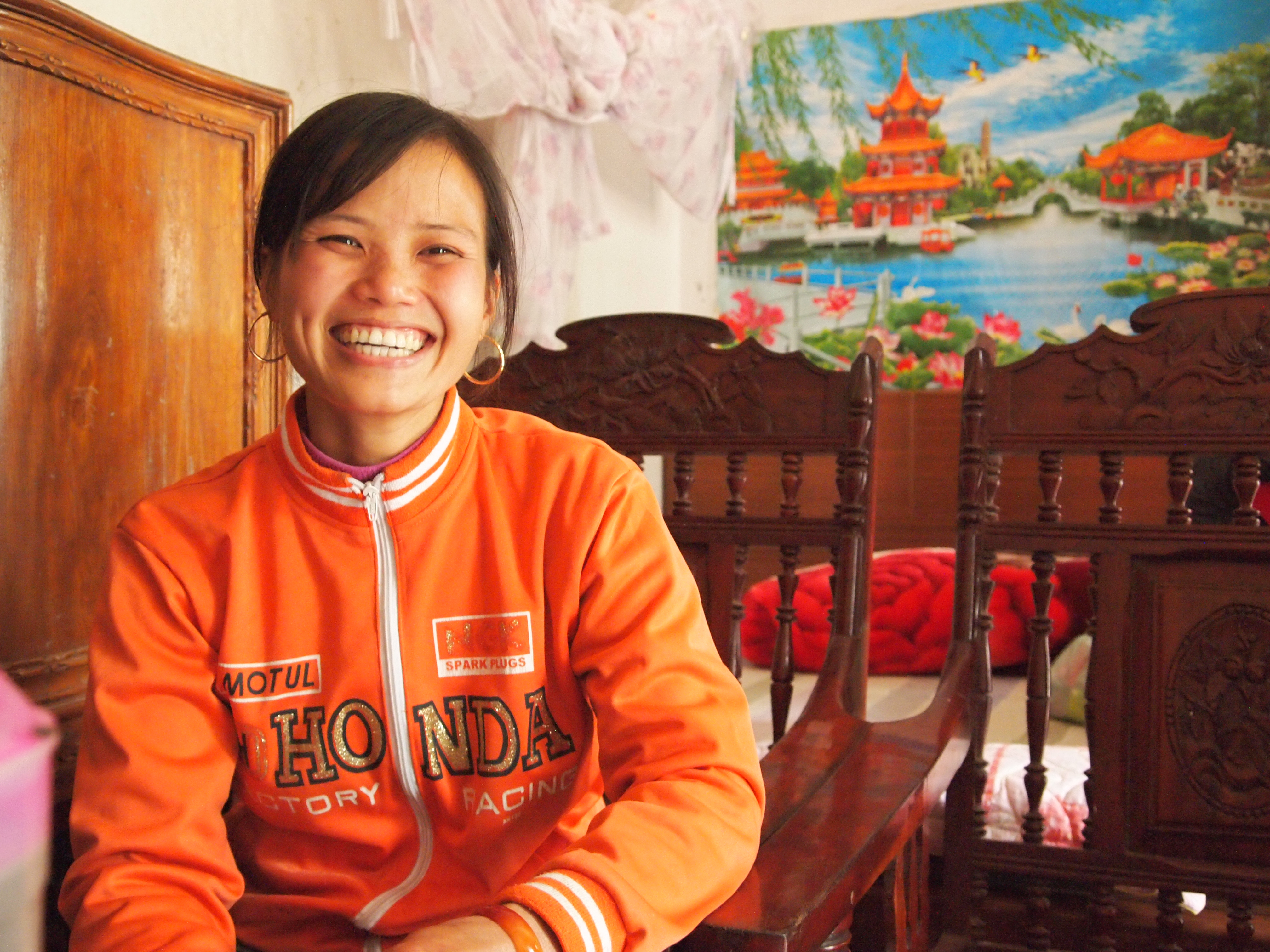There’s never been a dull moment since we arrived in Vietnam. Tiring, very. But dull, never.
The day after our trip to Nam Dinh, we headed towards Vinh Phuc province to visit participants of the microfinance program. Microfinance is excellent in theory: give small amounts of capital to female entrepreneurs, equip them with the power to make their own economic decisions, elevate the status of women in society, and watch the local economy grow. But only after visiting the program participants in the flesh can you truly come to understand how meaningful the program is on the borrowers’ lives.
First of all, it’s not just a program that passively gives out money. It helps the women build credit history and provides them with a host of other learning opportunities. On the day that we visited Vinh Phuc, there was actually a legal clinic being held on women’s property rights. Ms. Giang, an attorney who is dedicated to women’s rights, informed the women of changes in the laws and what it meant for their ability to hold and inherit property. The room was filled with women listening assiduously to Ms. Giang speak.
The surprising thing for us was that even after Ms. Giang told them about their rights, some of the women still weren’t convinced of the new laws’ utility. It just goes to show that Vietnam is still very much a patriarchal society, especially in rural and agriculture-based communities. We have a feeling, though, that once the women are able to see the new laws in practice, they will begin to excercise their rights more assertively.
After the morning’s legal session, we began visiting some of the borrowers’ in the microfinance program. Below is Ms. Dieu, who always has a smile in her eyes and giggles after every other sentence. She’s participated in the microfinance program for multiple cycles now, as she is steadily able to borrower larger amounts after building her credit history. She explained to us that participating in the program has improved her living standards and her outlook on life. When she told us that she’d sent her husband to do the day’s cooking so she could greet guests and attend the morning’s legal clinic, we knew right then that major improvements in women’s status had come to this rural commune. Just a few years, a woman to sending her husband into the kitchen would have been unheard of.
Here’s some raw footage of Ms. Dieu speaking to us! It’s unedited, so there are no subtitles for now, but we will get them up soon!
After visiting a few more microfinance participants, we stopped by a roadside restaurant for a family-style lunch. That means no shoes, lots of greens, and sitting on your derriere around a low-rise table. The food was fresh and delicious!
Feeling replenished, we once again began another round of visits to more women in the microfinance program. Ms. Yen below is a radiant 33 year old whose good spirit was infectious.
Ms. Yen explained to us that when she first got married, her husband and her had nothing. Not even a bed to sleep on! But now, she uses her microfinance loans to run a successful small business selling goods at open markets. Asked if she would want to scale up her business, Ms. Yen responded with an enthusiastic YES! Asked what her greatest worries were for her business, Ms. Yen replied that she thought she might not have enough inventory to sell. Hearing that, we immediately wanted to invest in this lovely lady’s enterprise.
There were many women that we visited that day, and these are just snippets of their stories. Eventually, we’ll sit down and share their stories in greater details with you. Please stay tuned!
What made the deepest impression for us throughout the day was the sense of unbounded optimism many of the women in the microfinance program have. All the loan recipients we spoke to today wished to continue with the program and borrow at larger amounts, and they were all fully confident of their ability to pay back larger amounts in a timely manner. We quickly came to realize that these women are all savvy risk takers–the very kind of people who are the backbone of progress. It was humbling getting to speak with them and getting to know the new ideas they are putting into motion. We’re looking forward to expanding the program to reach new borrowers and following-up with the women we met today.
We are so grateful to our local partners, the Center for Women and Community Development and the Center for Sustainable Development Studies, for joining us throughout the day and helping us realize this microfinance project!










